![]()
|
Biltons Ltd Biltons Ltd (1912 Ltd) Biltons Tableware Ltd Biltons
Tableware
(1998) Ltd |
Location and period of operation:
|
Biltons Ltd |
Stoke |
1900 |
1911 |
|
Biltons
Ltd (1912 Ltd) |
Stoke |
1912 |
1974 |
|
Biltons Tableware Ltd |
Stoke |
1974 |
1998 |
|
Biltons Tableware (1998) Ltd |
Stoke |
1998 |
1999 |
| Earthenware
manufacturer in London Road, Stoke,
Stoke-on-Trent, England.
Biltons were manufacturers of low- to mid-price earthenware tablewares of traditional design. Although forming part of several mergers and takeovers the Biltons trade name continued in use as a distinctive marketing strength.
|

notice of resolution on 11
January 1912 that Biltons Ltd be wound up
The Pottery Gazette May 1912
The business was continued by Joseph Tellwright as Biltons (1912) Ltd
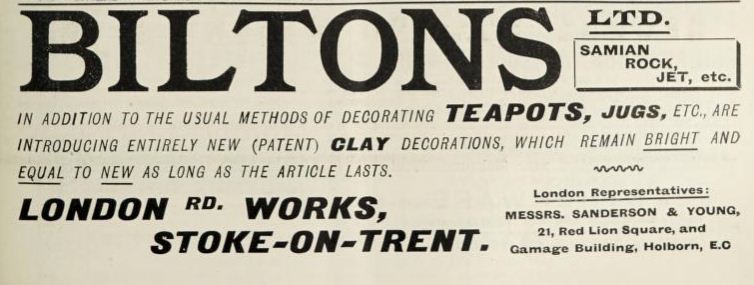
Biltons Ltd, London Road
Works, Stoke-on-Trent
The Pottery Gazette March 1906
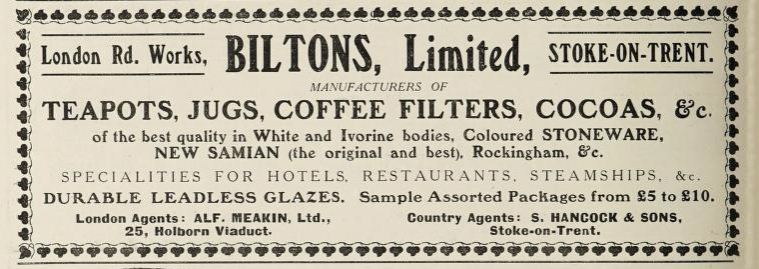
Biltons Ltd, London Road
Works, Stoke-on-Trent
Teapots, Jugs, Coffee filters, Cocoas &c
The Pottery Gazette November 1909



1960s and
1970s
Geometric styles in shape and surface pattern - floral designs are very stylised
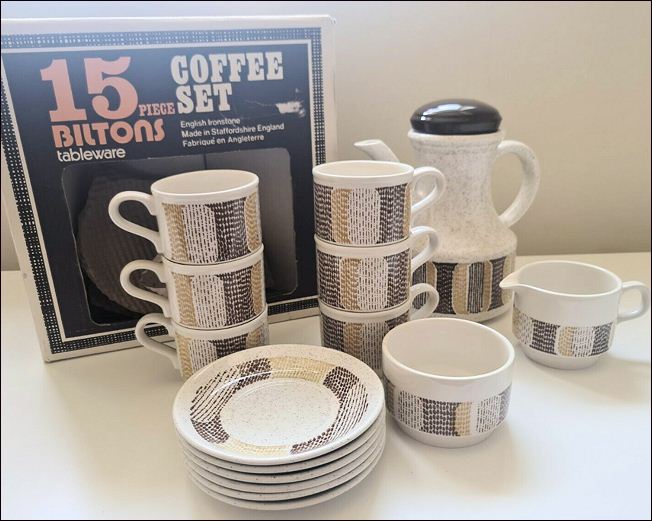 15 piece coffee set in a carry-away box
|
|
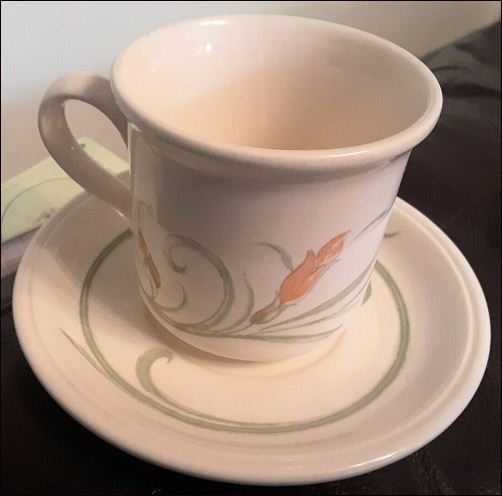 Biltons, Coloroll sup & saucer in the Saffron pattern |
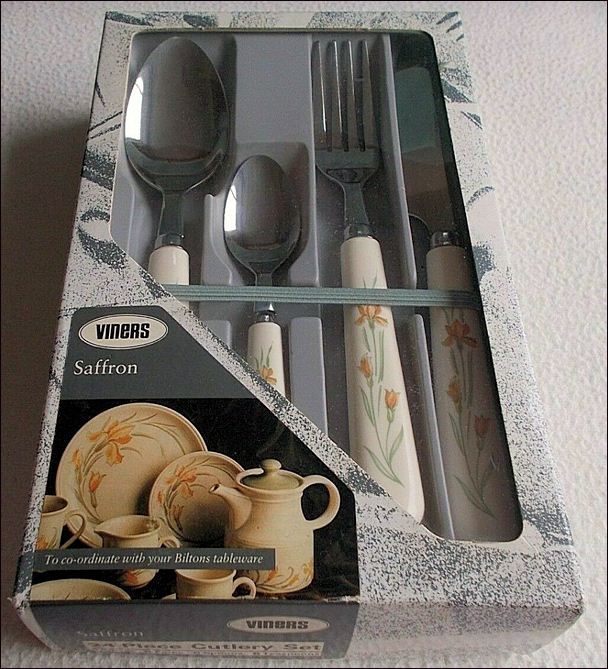 Viners cutlery set 'To co-ordinate with your Biltons tableware' |
accessories such as place mats, cutlery and the like were produced to match Biltons patterns
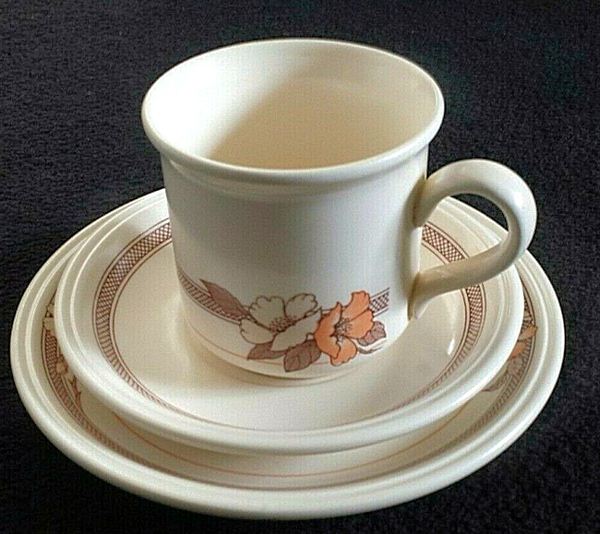 cup, saucer & side plate trio |
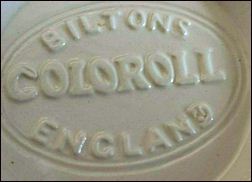 BILTONS COLOROLL ENGLAND |
From 1986 to 1989 Biltons Tableware Ltd operated as part of the Coloroll Ceramics Group
Marks used on ware for identification:
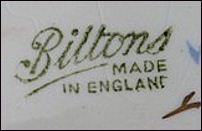
Biltons
Made in England
standard post-war mark
1947+ (probably used to the end of the 1950s)
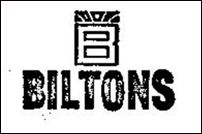
trade mark registered
in the US in 1972
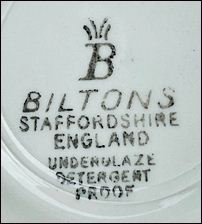
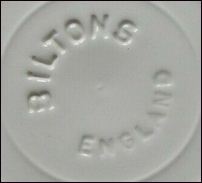
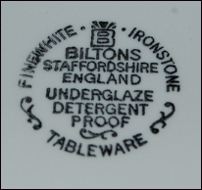
various printed and impressed marks used throught the 1960s onwards

From
1986 to 1989 Biltons Tableware Ltd operated
as part of the Coloroll
Ceramics Group
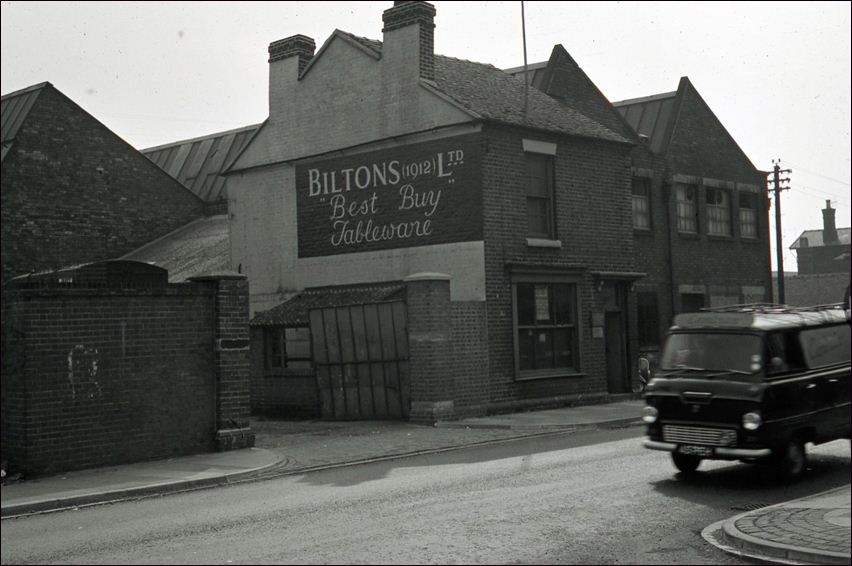
the corner of Biltons factory, London Road,
Stoke
photo early 1960s: Bert Bentley collection, Stoke-on-Trent Archive
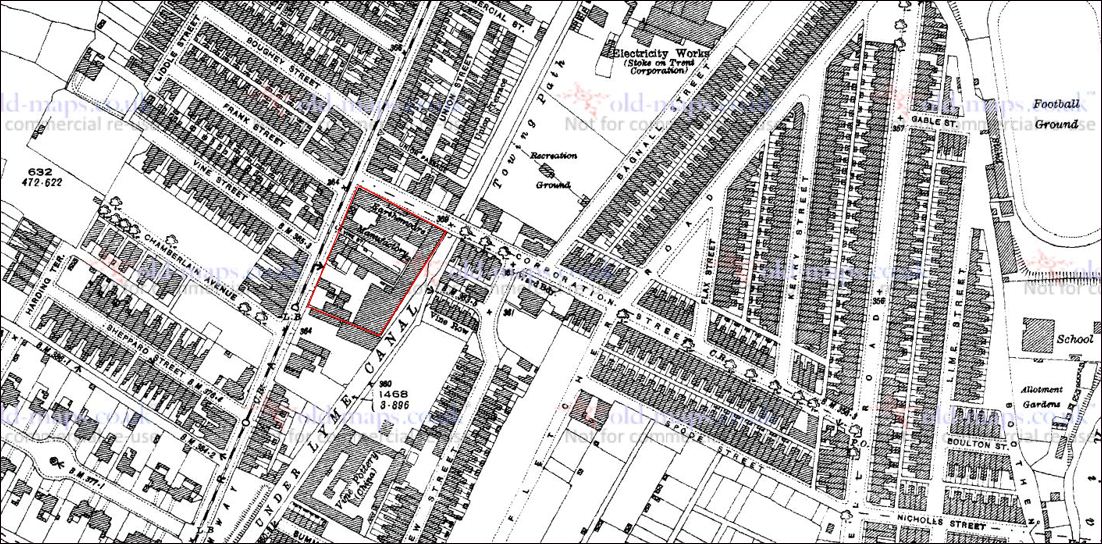
1924 map showing the Biltons'
factory
the factory was between London Road and the Newcastle-under-Lyme canal
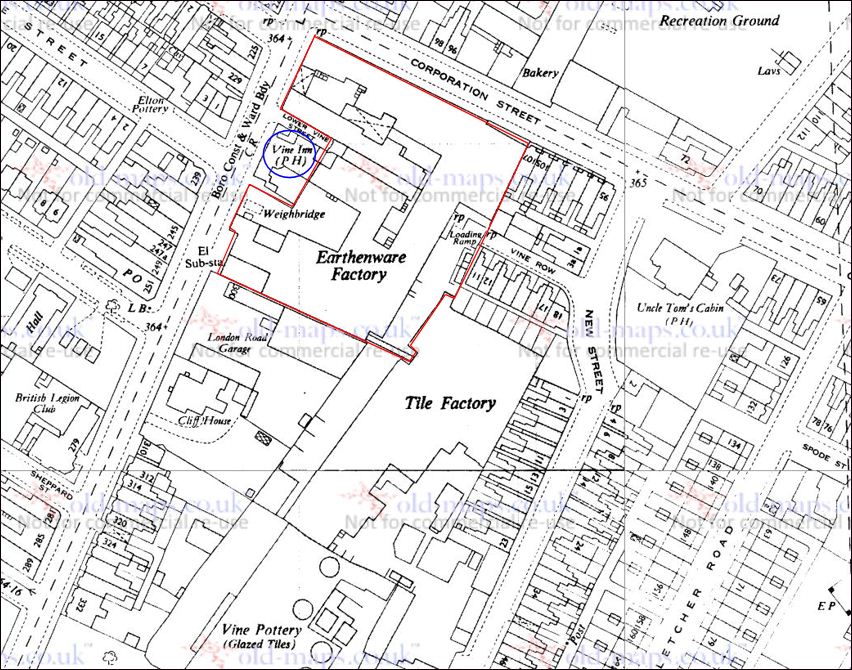
1953 map showing the Biltons
factory
the canal had been abandoned in
1935 and subsequently filled in
on London Road the Vine Inn was surrounded on both sides by the Bilstons'
factory
maps courtesy: old-maps.co.uk
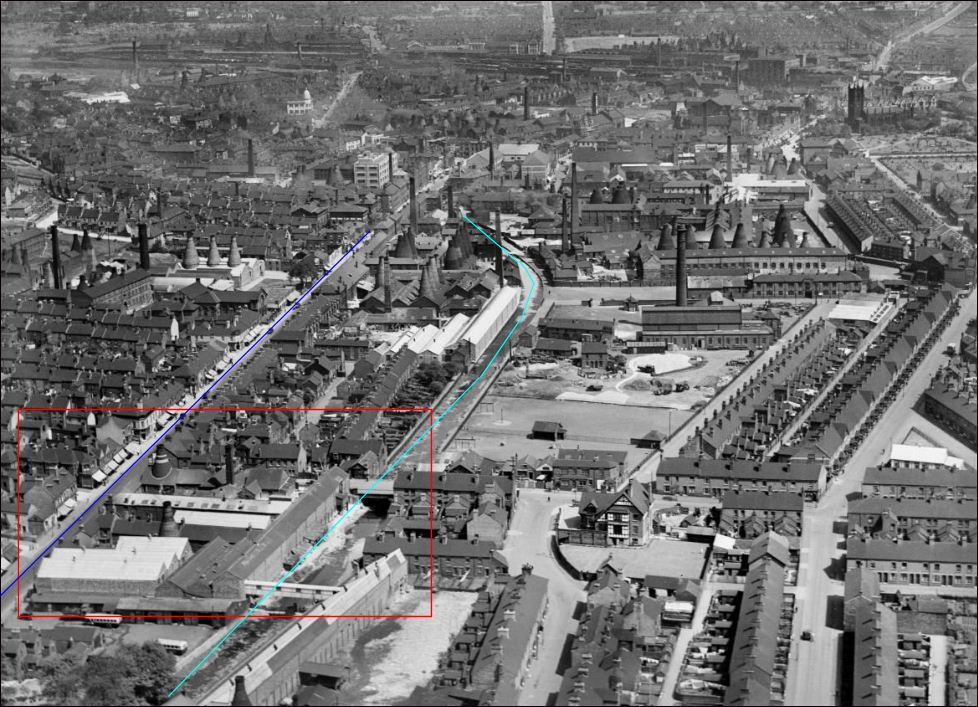
1933 photo of Stoke town
the Biltons works is shown in
the red rectangle
London Road is marked in dark blue and the mostly dried up Newcastle-under-Lyme
canal shown in light blue
the numerous bottle kilns of many other pottery factories can be seen
in the top right is the parish church of St.
Peter Ad Vincula
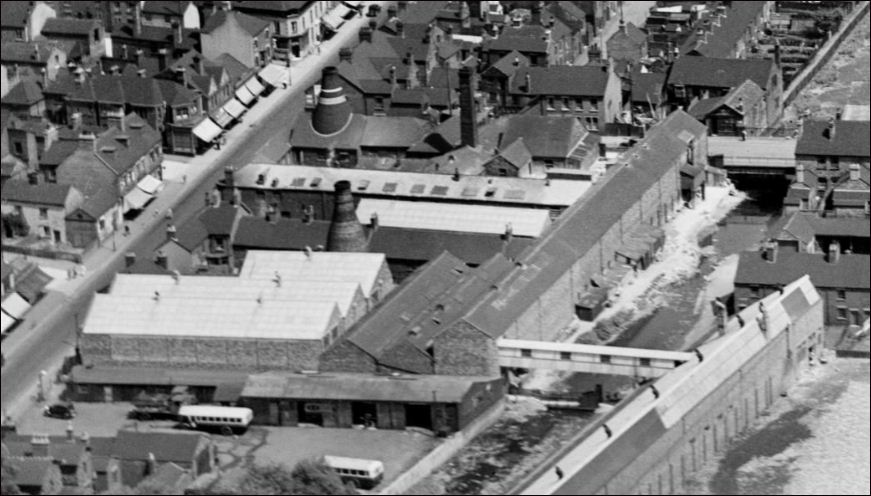
a closer view of Biltons'
works
photos courtesy: Britain From Above
Questions, comments, contributions? email: Steve Birks